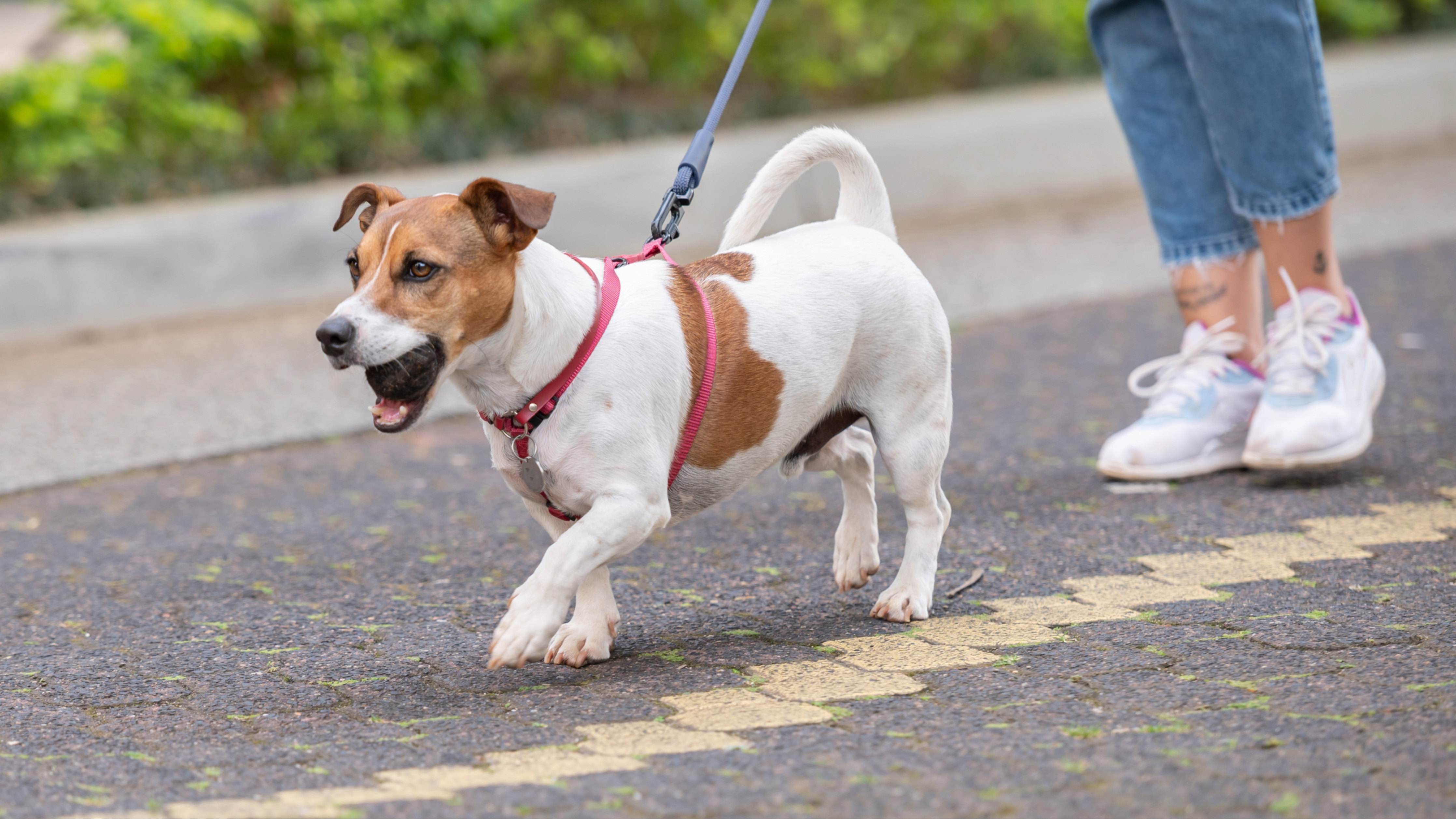
How can you help support your reactive dog? It’s something many dog parents want to know – reactivity in dogs is quite common, but that doesn’t make it any more desirable.
From management in those difficult situations to building your dog’s confidence, there are things you can incorporate into your training to help when it comes to reactivity – and, of course, a few of the best dog treats won’t go amiss – and there’s lots of advice out there, too.
In a recent Instagram post, award-winning trainer Lisa Burton of Listen Dog Training has laid out the three all-important aspects of reactivity training we all need to know. It’s really eye-opening, so let’s take a look.
1. Master arousal: “Stress in dogs has such a monumental effect on every aspect of your dog training,” begins Burton, “And yet is so often totally overlooked by owners when it comes to trying to deal with problem behaviors.”
She describes getting to grips with your pup’s arousal level as being vital when it comes to tackling reactivity in dogs – dogs who are often highly aroused are more likely to react, and can’t think as effectively as their calmer canine counterparts.
2. Grow optimism: When your dog displays reactive behavior, it’s a way of providing reinforcement for themselves when they’re faced with something they perceive to be negative.
“Build your dog’s confidence and optimism in the face of reactivity triggers, so that a previous negative association (that required the dog to regulate with reactivity) can over time become a neutral or positive association,” says Burton, “And delivers reinforcement for the dog without the need for reactive behavior.”
3. Your management toolkit: As Burton puts it, “What gets rehearsed, gets repeated,” so it’s important to limit the rehearsal of any behaviors or responses your dog might choose.
“Training clever transition and distraction cues will enable you to do this in real-life scenarios, whilst you work on growing optimism in controlled training sessions.”
You don’t need us to tell you that having a reactive dog can be tricky, but you might find this article insightful: I trained as a dog behaviorist to better understand my reactive dog, and it totally transformed our bond.
If your dog is reactive both in and out of the home, meanwhile, this article is worth a read: My reactive dog impacted my entire household, here's what I did about it.







